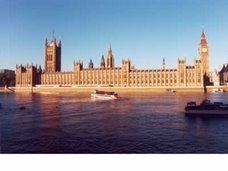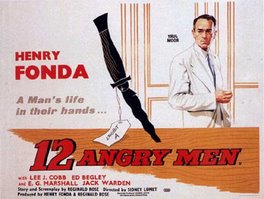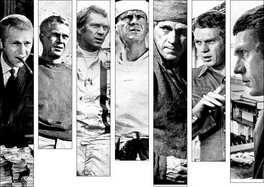At the end of financial year businesses up and down the country produce sets of accounts which relate to their trading position over the last 12 months. If they happen to be a limited company, they will also have to supply a projection as to how they see the company’s position certainly over the next year, if not longer. What would happen however, if Britain as a nation had to do this? How would we present ourselves to shareholders in the form of a balance sheet that reflected cultural, social and moral elements? How would we describe our prospects for the future based on these findings? Like any business, were would we envisage future problems coming from?
The Americans have addressed this concept in many ways with the Presidential “State of the Nation” address, though it is now a TV extravaganza which has been diluted and manipulated over the last fifteen years or so. The House of Commons also has a financial outlook with the Budget, again a statement which over the decades has denigrated to the depths of party political dogma and spin.
What then, would the auditors say about Britain and would they consider us a good investment prospect for the future? Below is the first part of the nation’s balance sheet as I see it. I leave you to decide whether you would invest or not.
EDUCATION
The provision of education in this country has long been seen as the responsibility of the state, both in the stipulation of content and infrastructure i.e. what we teach and what we teach it in. Historically, this has proven to be a prudent measure, with literacy and other intellectual indicators all improving since government involvement became the norm. Whilst private provision is allowed, it is constrained by taxation and regulatory restraints. What we are faced with then is essentially a monopoly, and whilst this has served to promote equality and uniformity, it has in the last twenty years or so become outdated and unyielding. The constraint of a creaking and dogmatic state structure has not allowed education to develop alongside global changes. Take for example the issues of technology and computer related subjects. This country has failed to keep pace with world changes and we now find ourselves with a shortage of programmers, technicians and innovators. The sole reason for this is that the state has not matched the rate of change in either application or teaching practise. We are even ignoring the basics; how many children leave school unable to create spread sheet data bases, create templates for the simplest of letters or even balance their own bank account statements? Our failure to develop latent talent in areas of technology is resulting in a spiralling decline in home grown innovation and development together with an outdated and outmoded industrial structure.
Harold Wilson spoke of the “white heat of technology”, perhaps he spoke before his time because it is only now that technology is about to enter the realms of extreme dominance. So what then is the solution to the gap between what is academically taught and what should be practically taught? Clearly, state provision should remain. As a population we are to large to allow market forces to provide an educational framework based on equality and accessibility. However, we need to radically rethink how we provide for the skills we need and who does the actual providing. We also need to completely dismantle the state structure and replace it with one that can adapt quickly to change. We need to draw more from non academic sources such as industry and commerce and we need to relate more to employers and their representative bodies. If this means Labour listening more to the CBI or the Conservatives working closer with trade unions then so be it: political dogma needs to be ditched in favour of practicality. When I talk of increasing links to areas outside of academic restraints, I don’t mean the half hearted creation of Blair’s so called specialist “City Academies”. Financially disastrous and educationally lacking, these bodies are tainted with the brush of cronyism and failure so let’s scrap them now. The teaching structure also needs to be radically changed; failure to have a university approved certificate should not be a barrier to a teaching post. We need experts who have the practical ability to relate to a subject, and they need to be able to move freely between areas of employment without restriction.
The application of science and technology is not the sole preserve of education however, and we cannot ignore the arts and humanities. However, we have a good historic reputation in this country re these subjects, and radical change is not needed. More emphasis may need to be placed on them, and I am particularly concerned that in the area of History we are going too far down the road of political correctness and “apology”. Whilst I may consider slavery to be abhorrent and the bombing of Dresden unnecessary, I was not responsible for them. We cannot revaluate and rewrite these and other related events using the constraints and moral views of today’s society. The opening line of LP Hartley's famous 1953 novel, The Go-Between, sums this up;
"The past is a foreign country, they do things differently there."
There is nothing wrong with the application of interpretation and evaluation when looking at historical events, the growth in women’s history allowing for example a new way of looking at the past. However, there must be equal consideration given to context. Without this freedom of approach, we remain in danger of becoming “academic apologists.”
The position then is clear; we need to adapt to a changing world but first we need to rebuild and revolutionise the institutions which will provide the means to achieve this. We also need to concentrate on what we do well, but without the shackles of political correctness and dogma which only serve as restraints to knowledge and interpretation.





































No comments:
Post a Comment